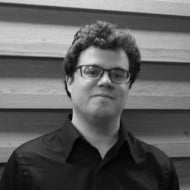With the endless arguments for and against the Union during the referendum, it seems opportune to look at the history of Lincoln during the formative years of the English nation and see if there can be any connections made to the current political and social strife amongst our Caledonian brothers and sisters.
Lincolnshire in the post-Roman period was a difficult place to inhabit. Sure Lindum Colonia had been a thriving trading port and regional capital, but as the remnants of the Empire faded in the 5th century, so did the fortunes of the city. As trade slowed, the city’s buildings began to crumble, roofs collapsed and sewers clogged from neglect. Even more worrisome, Germanic raiders were arriving on the coasts. Lincoln seemed destined to be reduced to a footnote in history.
It was in this era of uncertainty in British history that the Kingdom of Lindsey was formed. Those same Germanic invaders, the Angles under their king Winta, settled on the southern shores of the Humber (Winteringham and Winterton both bear his name) along Ermine Street. These invaders possessed great strength and were indeed fearsome, but archaeological evidence points to their deep respect for the Romano-British and their culture, particularly their rituals. Within 50 years the two groups had melded together– certainly not free from sporadic fighting – and a unified Lindsey (essentially meaning ‘the island of Lincoln’) was created to best serve both their interests.
Lindsey itself was not a particularly impressive kingdom. It boasted important settlements at Lincoln and Torksey, as well as spiritual centres such as the monasteries at Bardney, Barrow and elsewhere, but it lacked the financial clout, trading links and military strength of its much larger neighbours. Over the course of the 6th and 7th centuries, the kingdom found itself continually being forced into the influence of either Mercia to the west and Northumberland to the north.
Now, on first glance it would seem that Lindsey was of no real importance and its story has no real significance, but that cant be further from the truth. Despite the constant shifting of influence of other rulers, the people of Lindsey certainty left their mark on their new rulers.
Bede, the famed author of the Ecclesiastical History of the English People, noted the zeal to which the people of Lindsey not only embraced Christianity, but spread its message. The Holy Island monetary of Lindisfarne has been argued to have been named after pilgrims from Lindsey who were either frequent visitors to the site, or possibly its founders. In addition, numerous monasteries and prominent church sites sprung up along the River Trent and throughout north eastern Mercia.
What then, does all this nonsense about the obscure history of an obscure kingdom have to do with the Scottish Referendum? Simply put, the union between the kingdoms of England and Scotland was, in effect, just the final step in the greater union of all the various peoples and kingdoms of the island of Great Britain. It was an amalgamation of the peoples of the English, British, Norse, Gaelic, Pictish and other groups from a collection of disparate tribes and kingdoms into a unified political entity, which could rely on the unique contributions of each of its constituents to benefit all.
The union of the Angles and Britons in Lindsey simply illustrates the genesis of this process and shows that even a petty kingdom like Lindsey could greatly influence religion and spirituality across not only the east Midlands the north eastern coast. Scotland, like Lindsey, may struggle with the perceived loss of political power (as has been seen throughout this referendum), but despite this it has helped shape our nation immensity through many of its poetry, its innovations, its culture and its spirit (and spirits!).
While autonomy may often seem appealing (especially when the political system has become increasingly toxic), it is important to remember that this nation is a United Kingdom, not just of England, Wales, Scotland and Northern Ireland, but of many peoples, of many origins and beliefs, and despite the troubles these differences may cause from time to time, it is a nation ‘better together’.






